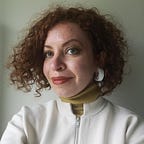Weaving networks — when we all need to be spiders
The Human Networks Convergence as a systemic form of organising
This blog is part of a living collection exploring systemic forms of organising
We’re at a point in time where different networks working towards systemic change are starting to see the need for deeper and more strategic collaboration to increase our reach, impact, access to audiences and funding.
This recent development towards a meshing of networks comes a sign of a level of maturity within individual networks which wouldn’t have been possible two or three years ago. Anecdotally it feels there is enough strength within networks as well as enough differentiation in between.
However, key barriers remain; for example, trust is slow to build (as it’s associated to individual network ‘nodes’ and relationship building is a time intensive process), access to funding for meshing is non-existent, tensions between emergent processes and a perceived need for a directional strategy to enable collaboration.
Grounding
Recent transdisciplinary research looking into the roles of translocal networks as ‘prefigurative social movements’ (Monticelli, 2018) has mapped an insurgence of alternative models of organising in the decade following the financial crisis of 2008. The use of the term prefigurative is used to signify that these forms of organising ‘embody their ultimate goals and their vision of a future society through their ongoing social practices, social relations, decision-making philosophy and culture’ (Monticelli, 2018). More recently, the research project TRANSIT has mapped out 20 case studies of such prefigurative translocal networks.
The Human Networks Convergence
#humannetworks #systemicweaving
Context
The Human Networks Convergence was a three day gathering of 30 network connectors representing 16 different international networks experimenting with alternative models and ways of organising to tackle systemic challenges. The purpose of the Convergence was to test whether a shared event, such as a co-designed Festival, could provide a container for the networks to share their learnings and practices with the wider world as a means for being greater than the sum of our networks.
Our objectives for the Convergence
Through the Convergence we wanted to cover the following:
- Explore the synergies between different people and networks and therefore the scope for aligned collaboration and action;
- Test whether the idea of a big co-designed event such as a Festival is something we have energy for, or want to commit to;
- Identify our shared needs, drivers and challenges as a starting point to move forward.
What we developed
Over the course of the three days we developed a set of guiding principles for the shared space we wanted to create, we put in place collective agreements for safe space, mapped our drivers, and through an open space process we explored a series of areas to codevelop next.
In one of our sessions we mapped the different drivers behind coming together; this is a key map as elements of these drivers are recurrent in different spaces / networks. Key drivers become apparent: the desire to create a wider cultural shift, the need to build a bigger movement for systemic change, the desire to inspire others, the need to raise awareness and make networks visible to one another and the wider world, the need to unlock further access to resources, the need to build strength through collaboration.
Key links
Full write-up document: goo.gl/2F9RWk
Our guiding principles: goo.gl/WNRiww
Twitter: https://twitter.com/HumanNetFest
If you’d like to get involved…
Are you a network node and you’d like contribute to the co-design process and get actively involved? -> we’ll be releasing more details, but meanwhile, get in touch with one of the people who participated in the Convergence and sign up here: https://ouisharefest.typeform.com/to/C1NUDO
